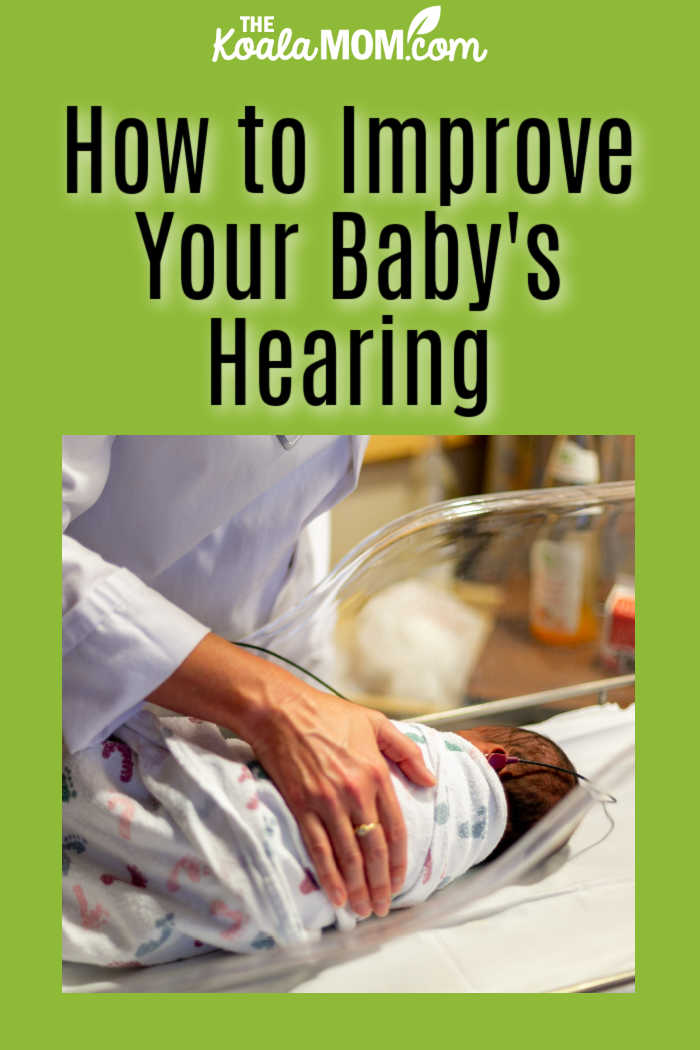Infants typically have hearing screenings before they go home from the hospital to ascertain their hearing. This facilitates early diagnosis and treatment of hearing loss by medical professionals. Early intervention improves language abilities for children with hearing loss. If your newborn isn’t given a hearing screening at the hospital, you should schedule one within the first month. Here are a few suggestions for helping your infant develop normal hearing.

Limit Noise Exposure
Overexposure to loud noises can cause temporary deafness and tinnitus if the exposure is brief. A child’s physical and mental health, including their ability to learn, behave, speak, and communicate, can all be negatively impacted by chronic exposure to loud noises. Consistent exposure to loud noise has been shown to interrupt standard sleep patterns and increase heart rate and blood pressure.
The critical point to take away from this is that babies should not be viewed as minor versions of their adult counterparts. They are considerably more sensitive to their surroundings than we are as adults since they are still growing and developing. Be on the lookout for clues. A baby’s startle reflex may be triggered by a sound that falls somewhere in the loud painful spectrum for infants. If your child has sensitive hearing, you should avoid loud environments like concerts and construction sites.
Talk to Your Baby
Your unborn child has been exposed to sound for a long time. A baby’s prenatal environment includes the mother’s heartbeat, the mother’s digestive system gurgling, and the mother’s voice and the voices of other family members. The outer world sounds will be audible to your newborn from the moment they are born.
Your baby will respond well to your voice, so feel free to chatter, sing, or coo to them. You can benefit from your baby’s “talking” by engaging in “conversation” with them. If your baby makes a noise, mimic it and see if you can get another out of them.
Hearing Screening
Children’s early language development depends on their ability to hear and process sounds; hence screening for hearing loss in infants is crucial. In light of this, your hearing test audiologist will be concerned about your child’s hearing screenings from birth. Many jurisdictions mandate hearing tests for infants before they are released from the hospital after birth, making them an integral part of newborn screenings.
You should listen to your instincts if you have doubts about your baby’s hearing beyond the routine newborn hearing screening. See your child’s doctor for a thorough hearing examination if you have any concerns. The good news is that early detection and treatment of hearing problems are possible with consistent screening.
Clean Baby’s Ears
When caring for a baby, keeping the ears clean is essential. You can wash the skin on and around the baby’s outer ear during a routine infant bath. It would be best never to put anything, including cotton swabs, into your infant’s ear canal. Even if you see earwax deep down your ear canal, cleaning it out is unnecessary. Your infant will benefit from earwax’s protective, lubricating, and antibacterial qualities.
Any damage caused by removing it is likely to be severe. Few infants develop earwax buildup. Earwax is often produced in adequate quantities by the ear canal. But, if earwax accumulates too much, it can impede hearing and even be painful or uncomfortable. If your infant is in pain, you may notice that they are tugging at their ear. Clean it to improve their hearing, because excess wax can block sounds.

No Responses Yet